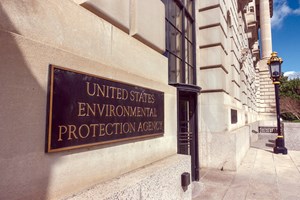EPA’s final air quality rule “short-sighted,” prioritizing foreign energy, API says
(WO) — The American Petroleum Institute (API) released the following statement from API Vice President of Downstream Policy Will Hupman on EPA's final rule reconsidering the National Ambient Air Quality Standards (NAAQS) for fine particulate matter (PM2.5):
“Protecting public health and the environment is a top priority for our industry, and America has seen significant air quality improvements and reduced emissions over the past decades under the existing EPA standards. Yet, today’s announcement is the latest in a growing list of short-sighted policy actions that have no scientific basis and prioritize foreign energy and manufacturing from unstable regions of the world over American jobs, manufacturing, and national security. As we review the final standard, we will consider all our options.”
America’s air quality has significantly improved under the existing standards thanks to cleaner fuels, advanced technologies and industry actions that have contributed to a 42 percent decline in fine particle concentrations since 2000. As a result, the majority of PM2.5 emissions originate from non-point sources such as wildfires and road dust, while industrial sources account for less than seven percent.
The new standard of 9 µg/m3 is near naturally occurring levels of fine particles and will place nearly 40 percent of the U.S. population in areas of nonattainment. This will lead to new controls on both industrial and non-industrial sources, creating new permitting challenges while jeopardizing nearly $200 billion in economic activity and as many as one million jobs. Emissions from non-point sources like wildfires will only further complicate efforts to achieve compliance and likely increase the number of nonattainment areas.



